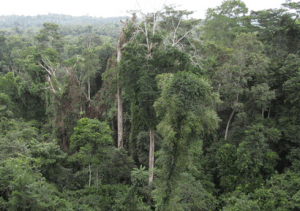Ghana to host 4th World Teak conference
 The Forestry Commission has been selected to host the fourth World Teak Conference to deliberate on challenges in production and marketability of teak in emerging economies.
The Forestry Commission has been selected to host the fourth World Teak Conference to deliberate on challenges in production and marketability of teak in emerging economies.
It is the first time the conference is coming to an African country as the previous three were held in countries in Asia and Latin America.
The conference will also focus on the current state of knowledge and future challenges for the sustainable development of the global teak sector in a changing world.
In this direction, the Forestry Commission has inaugurated a 13-member local Organising Committee for the Conference scheduled for Ghana on 24 to 27 August 2020.
The event is being organised jointly by the International Teak Information Network in collaboration with the Forestry Commission and the International Tropical Timber Organisation, Japan, and Food and Agriculture Organisation of the United Nations.
Inaugurating the Committee, Mr Kwadwo Owusu Afriyie, the Chief Executive of the Forestry Commission, urged the committee to map out a detailed strategy to make the conference a success.
He pledged continuous support and resources for the committee, which has membership drawn from academia, the private sector and government, to ensure successful execution of the task.
Beyond Asia Ghana has the largest area of teak in the world.
Mr John Allotey, Deputy Chief Executive of Forestry Commission and Chairman of the Committee, pledge the readiness of members to project Ghana’s image on the global stage.
He expressed the appreciation of members to the Chief Executive for the confidence reposed in them to work on the committee.
The fourth World Teak Conference (WTC) is on the theme: “Global teak market: Challenges and opportunities for emerging markets and developing economies.”
In Ghana, teak constitutes about 70 per cent of all forest plantation species.
Some of the topic earmarked for discussion are smallholder teak plantations, value addition, marketing and livelihood enhancement of rural communities, tree improvement, genetics, silviculture and stand management.
Source: GNA
